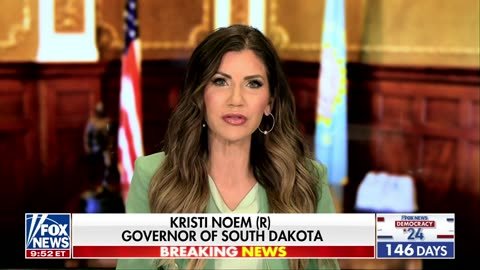Almost eight years after Donald Trump defended his hand size — and more — during a Republican presidential primary debate, the infamous moment is set to loom large at Supreme Court oral arguments Wednesday.
California-based attorney Steve Elster’s bid to make “Trump too small” a registered trademark for use on shirts he sells mocking the former president has become the latest in a series of Supreme Court clashes that pit trademark law against the First Amendment.
Elster’s application was rejected under a provision that prohibits registered trademarks that mention a living person without their consent. A federal appeals court, however, ruled the restriction violated Elster’s free speech rights, because he was criticizing a government official.
It leaves the Biden-era Justice Department on Wednesday defending the provision before the Supreme Court. Trump is not a party in the case.
The mark in question references the personal tit-for-tat between Trump and Sen. Marco Rubio (R-Fla.) during the 2016 campaign season.
“He’s always calling me ‘Little Marco.’ … Have you seen his hands? They’re like this,” Rubio said at a campaign rally, mockingly crunching his hand. “And you know what they say about men with small hands — you can’t trust them.”
Trump responded during a primary debate days later, “He referred to my hands, ‘If they are small, something else must be small.’ I guarantee you there is no problem. I guarantee.”
The case is now the third time in six years the Supreme Court is set to decide whether a restriction in the Lanham Act — the primary federal trademark law — violates the First Amendment’s free speech protections.
In 2017, the court invalidated a provision that banned registered trademarks that disparage a person, allowing Asian American rock band The Slants to register their name. Two years later, the court allowed “F-U-C-T” to be trademarked by striking down a provision banning immoral or scandalous trademarks.
The Justice Department is expected to distinguish the restriction now at issue as viewpoint-neutral and argue it only needs to clear a lower hurdle.
But Elster is arguing that the provision still fails any applicable test, because it imposes an impermissible content-based and speaker-based regulation of speech.
“It was enacted to suppress speech that Congress deemed to be distasteful,” Elster’s attorney wrote in court filings.
“And its effect has been to do exactly that: blocking registration of all marks that criticize public figures, while leaving those people free to register their own positive marks,” the brief continued. “For these reasons, the clause must be subjected to at least intermediate scrutiny. It cannot withstand such scrutiny, and the government does not argue otherwise.”
The Justice Department is portraying the trademark refusal as withholding a government benefit rather than a simple restriction on speech, a question left open in the Supreme Court’s recent line of cases.
Under that argument, the statute would be upheld as long as it is deemed reasonable, a lower hurdle than Elster suggested.
“Refusal of registration under Section 1052(c) does not limit the rights of trademark owners to use their marks in commerce or to engage in whatever speech they wish,” the Justice Department wrote in its brief. “The only effect of the refusal is to deny an owner the benefits—i.e., additional mechanisms to prevent use of the same mark by competitors—that federal registration provides. Because Section 1052(c) does not restrict speech, heightened scrutiny is unwarranted.”


